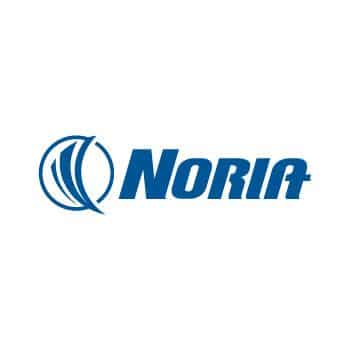Machinery Lubrication Analysis II
If yours is like many companies, you may already be winging your way around oil analysis. Perhaps trying to predict failures, or just basing oil drains on your oil analysis report recommendations. Either way, you probably know there’s a lot about oil analysis you haven’t mastered … and you might be wondering what you are missing. Wouldn’t you like to know ALL about what oil analysis can do for you? Now you can!
Extending oil and machine life are two of the primary goals of oil analysis, but analysing the oil won’t make the oil or machine last any longer. That’s why Noria’s proven strategy for extending machine and lubricant life by up to 10x is the cornerstone of this training. You will learn that making small adjustments to lubricant properties can result in huge savings and take your return-on-investment from oil analysis to new levels.
This course is designed to help you prepare for the ICML Level II Machine Lubricant Analyst (MLA) certification.
An Arsenal Of Knowledge for Your Oil Analysis Program:
Develop Rapid-Fire Trouble Shooting Skills
Oil Analysis provides critical early warning information to impending machine failure. Those trained in the language can “crack the code” of even the most complex problems. Knowing how to interpret changing lubricant properties involves a specific sequence of steps that can be easily learned. Get the answers.
Squeeze Maximum Life From Lubricants
Lubricants and hydraulic fluids can have infinite life when specific operating conditions are stabilized. The rising costs of new lubricants and the disposal costs of used fluids is a directive for change. A proven action plan for extending fluid life is key. Get the answers.
Champion A Company-Wide “Clean Oil” Campaign
High fluid cleanliness is the lynch pin of a successful proactive maintenance program. But how clean? Which filters? How much life extension can be achieved? Get the answers.
Take Aim On Reactive Maintenance
On a global scale, maintenance organizations are undergoing a renaissance of change. Goner are the days when maintenance functions centred around corrective repairs and damage control. Today’s battle cry of “condition-based maintenance” has transformed common mechanics and repairmen into high-tech instrument operators and machine diagnosticians. Discover how oil Analysis and proactive maintenance are the leading the charge.
Through this Certification Course, participants have the opportunity to accrue 5 Continuing Professional Development (CPD) points.
Course Outline:
- Five prevailing features of world-class maintenance programs
- The 80:20 rule for maintenance
- Three successful elements of a CBM program
- Oil formulation and its importance in effective machinery lubrication
- Six key functions of lubricating oils
- Three primary lubrication regimes
- Introduction to base oils and additives
- Choosing the correct base-stock
- Conditions that dictate use of synthetic oils
- Antioxidant additives and their role in oil life
- Dispersants and detergents – the key to controlling soot
- Controlling wear with additive chemistry
- Interpreting the language your oil is speaking
- Prevailing myths about oil analysis
- Common applications for sampling and analysis
- Three categories of oil analysis
- 11 elements of a successful oil analysis program
- How clean should sample bottles be?
- How to find the best sampling locations
- Sampling valves and hardware recommendations
- A quick method for optimizing sampling intervals
- The importance of primary and secondary sampling points
- How to properly sample circulating systems
- Safe, effective high-pressure sampling from hydraulic systems
- Best practices for sampling splash-, collar-, and ring-lubricated systems
- Four common root causes of oil degradation
- Recognizing and controlling oil oxidation
- Monitoring lubricant degradation using acid number
- Monitoring lubricant health using FTIR
- Determining oil life using RPVOT
- Recognizing and controlling thermal failure
- How to recognize additive depletion or degradation
- Using paper chromatography (blotter spot test) to detect additive and base oil degradation
- Seven common contaminants
- Oil cleanliness and oil life extension benefits
- Using the ISO Solid Contamination Code
- Proactive maintenance in three easy steps
- Case studies for proactive maintenance
- Oil filter and breather recommendations
- Portable filtration carts – three ways to use them
- Setting targets for oil cleanliness
- Detecting and controlling moisture contamination
- Selecting moisture removal/filtration methods
- The effects of heat on lubricants
- Controlling air entrainment and foam
- Glycol contamination
- Dealing with soot
- Understanding fuel contamination
- How wear metals are measured using RDE and ICP spectrometers
- Measuring larger particles with Rotrode Filter spectroscopy
- Using ferrous density to determine the severity of a wear problem
- Using analytical ferrography for advanced fault detection
- Using ferrography for root cause analysis
- Four primary sources of friction in lubricated machinery
- The 10 wear mechanisms that reduce machine life
- The most common wear modes in plain, rolling element, and thrust bearings
- Understanding gear wear
- Understanding wear in hydraulic systems
- How to inspect vents and breathers
- Tips for effective sight glass inspection
- Getting valuable information from used filters
- Inspecting reservoirs for clues about lube trouble
- Scenting lubricants to find problems
- Getting visual clues from the oil sample before mailing it out
- Getting into particle analysis for under $100
- Turn your kitchen blender into a test for demulsibility and foam tendency
- Screening for water with a simple hot plate
- How an unwanted business card can reveal oil degradation
- Individual and group participation in problem-solving exercises
- Exercises in how to read an oil analysis report

Course Info
- Dates
- 12 May - 16 May 2025 (JHB) FL-C2-2
- 21 Jul - 25 Jul 2025 (JHB) FL-C2-4
- Location
- Johannesburg
- Duration
- 5 Days
